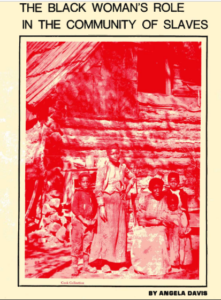
Before the Florida Department of Education issued its curriculum directive that slavery in the United States did, after all, produce “personal benefits” for the enslaved in the form of a well-stocked resumé of trades, useful after Emancipation in 1863, the board members might have consulted a seminal document in the literature of the oppressed—Angela Davis’s 1971 essay, “Reflections on the Black Woman’s Role in the Community of Slaves.”
